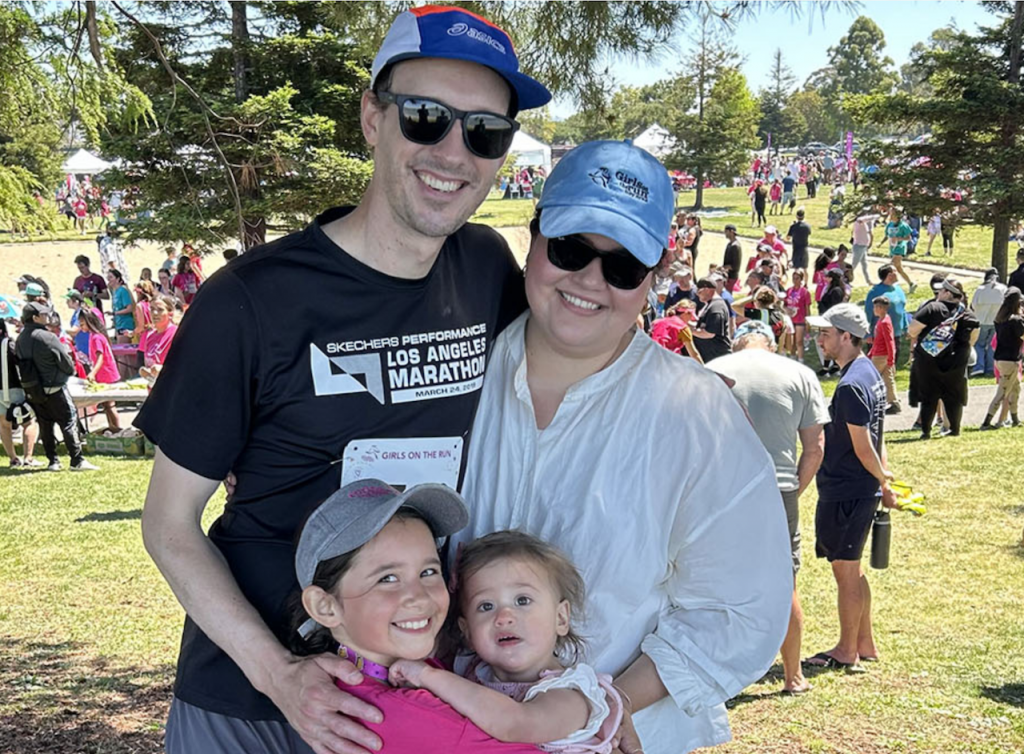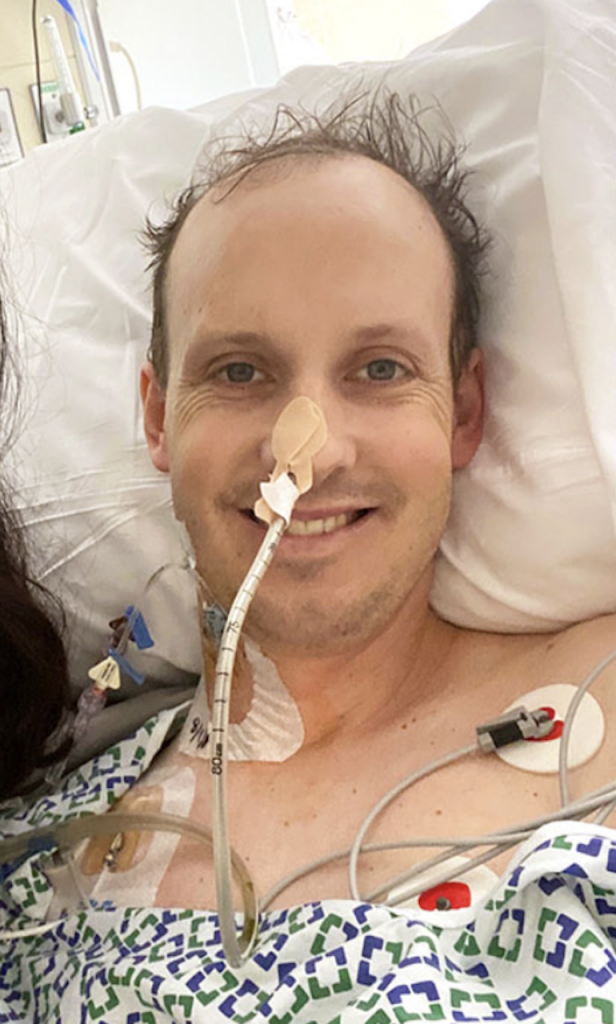Dealing With Rare Disease
- Chris Barry is thriving with a rare genetic disorder after undergoing a life-saving intestinal transplant three years ago. He now insists on wanting to “enjoy life and take advantage of the time I have” and sharing his story with others to spread awareness about genetic disorders like the one he has called Familial Adenomatous Polyposis (FAP).
- People with FAP have hundreds, or even thousands, of polyps that coat the inside of their colon. Because of this, without treatment, all patients with FAP will go on to develop colon cancer.
- Handling a rare disease can be very overwhelming, but SurvivorNet’s experts have guidance on how to seek out specialized treatment providers.
- More common diseases might not require the same degree of specialized attention, but finding doctors with specific expertise may be necessary for rare ones. In that case, the most effective place to find a specialist is often at academic centers and comprehensive care centers.
- The SurvivorNet Clinical Trial Finder and websites called Clinicaltrials.gov and PubMed are great resources to use if you’re considering experimental treatment for your rare disease. These databases can also help you find doctors who specialize in your disease.
- Other options you may pursue include researching companies that are in the process of developing drugs to treat your specific disease and investigating the possibility of “compassionate use,” which makes drugs available to some patients before the drugs are officially approved.
Barry first found out he had a rare genetic disorder called Familial Adenomatous Polyposis (FAP) at age 14, after his mom learned she had the disorder following a routine colonoscopy—a discovery which prompted him to undergo genetic testing.
Read MoreHe ultimately was told at a hospital emergency room that he had a desmoid tumor “the size of an American football, about 11 inches.”
According to the National Cancer Institute (NCI) these tumors “grow from the connective tissue in your body” and “are also known as aggressive fibromatosis or desmoid-type fibromatosis.”
Barry’s desmoid tumor ended up perforating his bowel, leading to him having a severe body response to infection called sepsis.
After undergoing an intensive chemotherapy treatment, Barry recounted, “The plan was to shrink the tumor so it could be surgically removed. It shrunk by 40 percent in volume but was embedded around the mesenteric artery in the midsection of the digestive tract, so it could not be removed.”

Then in 2021, when his bowel was perforated once again, prompting his doctors to inform him they “couldn’t do anything more.” That was when he sought additional help from Anil Vaidya, MD, a transplant surgeon with Cleveland Clinic’s Intestinal Transplant Program, someone his loved ones referred him to.
It was then Barry learned he could have his tumor, affected organ, and small intestine removed and replaced with an organ donor’s small intestine.
He also recalled Dr. Vaidya telling him, “That’s what we do (intestinal transplants) here; we can do that, and your life will greatly improve,” before undergoing the rare procedure on in August 2021.
More On Living With Rare Disease
- In Honor of Rare Disease Day, SurvivorNet Shares Resources for People Navigating a Rare Cancer Diagnosis
- Resilience: Staying Positive Despite Adversity
- Michael J. Fox’s Determination to Remain Positive During Decades-Long Parkinson’s Journey Shows Cancer Patients the Importance of Optimism
- 6 Cancer Survivors Tell Us How They Stay Hopeful During Difficult Times
Dr. Vaidya, who described Barry’s health situation as “critical,” said the isolated small bowel transplant surgery, along with Barry’s positive attitude,” helped the dad of two power through adversity.
Thankfully, three months after the procedure, Barry is back working as a civil engineer and running, a hobby he’s taken up to spread awareness for rare diseases.
Eighteen months after his surgery, in April 2023, he ran the Boston Marathon. Another year later, he ran the Paris Marathon.
“I’m happy to share my story and provide hope for others with rare diseases,” he previously told the Desmoid Tumor Research Foundation and NORD, according to the Cleveland Clinic.

He also told NORD on his fundraising page, “Through a connection at the Cleveland Clinic, I was able to receive an intestinal transplant which removed the tumor and reconfigured my intestine tract.
“The transplant was difficult and will be something I have to monitor for the rest of my life, but it drastically improved my quality of life and provided me the opportunity to return to normal life activities. I will forever be grateful to the transplant surgeon and medical team for giving me another chance.”
Understanding Colon Cancer & FAP
The vast majority of colon cancers develop in people who have no family history of the disease. However, about five to ten percent of colorectal cancers are caused by an inherited genetic mutation.
The two major subtypes of hereditary colon cancer are called Lynch Syndrome also known as hereditary nonpolyposis colorectal cancer and familial adenomatous polyposis (FAP).
People with FAP have hundreds, or even thousands, of polyps that coat the inside of their colon. Because of this, without treatment, all patients with FAP will go on to develop colon cancer.
Inherited Genetic Disorders in Colon Cancer: FAP
That’s why everyone with the FAP genetic mutation which is detected by a blood test should have their colon removed by the age of 20, advises Dr. Ophira Ginsburg, formerly a medical oncologist at NYU Langone’s Perlmutter Cancer Center and now a Senior Scientific Officer at the National Cancer Institute.
Even after the colon is removed, these patients will still need screening for polyps that can also form higher in the intestinal tract.
Gastrointestinal oncologist, Dr. Paul Oberstein, describes the most common symptoms of colon cancer
Have a Rare Disease? Here are Some Resources
All sorts of feelings of anxiety, fear, and loneliness can come with the diagnosis of a rare disease. But it’s important to know you’re not alone. Below are some helpful resources for the many people affected by lesser-known or less-researched diseases.
Academic Centers and Comprehensive Care Centers
For some rare disease warriors, community centers provide great treatment options. But for people with rare conditions, cancer or otherwise, more specialized care may be required. In that case, the most effective place to find a specialist is often at academic centers and comprehensive care centers.
In a previous conversation with SurvivorNet, Dr. Kenneth Miller, director of outpatient oncology at the University of Maryland’s comprehensive cancer center, explained what differentiates a “comprehensive cancer center” from other treatment providers.
Seeking Care at a Comprehensive Cancer Center
“Pretty much automatically, there’s going to be a team approach [to your care],” Dr. Miller said. “Surgical oncology, medical oncology, radiation oncology, and all the support services, and also wonderful pathology and radiology.”
Dancer Bethany Keime On Learning To Live With a Rare condition Called Hypertrophic Cardiomyopathy.
Dr. Miller added that at a comprehensive cancer center, all of these different specialists work together as a team to help you find the best course of treatment for your specific kind of cancer.
“We call it a tumor board, a group to go through all the details of your case so you get a group of very smart people coming up with a plan together that is hopefully optimal and gives you the best chance of doing well.”
Clinicaltrials.gov and the SurvivorNet Clinical Trial Finder
Another place to turn to when you’ve been diagnosed with a rare disease and you’re considering experimental treatment )or trying to find specialists) is clinicaltrials.gov, a database maintained by the U.S. government that compiles privately and publicly funded clinical trials conducted around the world.
Clinical trials themselves are research studies that compare the most effective known treatment for a specific type or stage of a disease with a new approach.
Clinical Trials Can be Life-Saving for Some
Clinicaltrials.gov can help you explore possible treatment options by looking at trials that are actively recruiting. The site also provides the information of some of the most specialized doctors in a specific field since they often end up leading clinical trials that advance our understanding of diseases.
By searching your disease on Clinicaltrials.gov, you will usually come across a list of many studies. The lead researcher will be listed under the heading, “Investigators.” Lead researchers in studies on rare diseases are typically doctors who have specialized in the study of that condition.
And if you’d prefer to search for clinical trials on a more user-friendly site, try SurvivorNet’s new A.I. driven tool built on top of clinicaltrials.gov: the SurvivorNet Clinical Trial Finder. This tool is updated daily and gives users access to more than 100,000+ individual clinical trials to help them find treatment options.
To use the SurvivorNet Clinical Trial Finder, simply answer some basic questions using our custom-designed chat feature and we’ll send clinical trial options within your region right to your email. In simplifying the search, we hope to offer multiple opportunities for clinical trial sponsors and clinical research organizations to engage with patients.
“Clinical trials are critical to the development of new therapies, and as we live through this extraordinary revolution in genomics, immunotherapy and targeted therapy, it’s clear that one of the most pressing needs for patients, clinical trials sponsors, and researchers is simply a better way to find patients,” SurvivorNet CEO Steve Alperin said. “Even one percent more people successfully enrolled in clinical trials can change the world.”
PubMed
Similar to clinicaltrials.gov, PubMed is another place to turn if you’re looking to research your rare disease. This website includes more than 33 million citations for biomedical literature from MEDLINE, life science journals, and online books.
If you type in your disease, you’ll see a list of studies and articles about the condition. You can even add a filter to only look at clinical trial information. By looking at the doctors associated with the published clinical trial results and other articles, you may be able to find doctors that specialize in research for your disease.
Newly-Developed Drugs
For those who’ve been recently diagnosed with a rare disease, we also want to highlight reasons for hope since there is something of a revolution going on in the development of drugs for rare diseases.
The sequencing of the human genome has enabled doctors to take new approaches to treating some of these uncommon conditions. One step you may take after being diagnosed with a rare disease is looking into the drug companies developing drugs to treat your condition.
Compassionate Use and Off-Label Use
Drug companies may be able to help patients enroll in clinical trials, and in some rare cases, they may even be able to offer “compassionate use.” Compassionate drug use makes a new drug that has not been fully approved available to a patient facing a serious illness. This only typically happens when a patient has exhausted all other treatment options, but it is an important option to understand.
Similarly, researching drug companies may be a path to “off-label” drug use. Off-label drug use involves taking a drug that has been approved for treating one condition in the hopes that it may treat another condition that it has not yet been approved for.
Contributing: SurvivorNet Staff
Learn more about SurvivorNet's rigorous medical review process.

